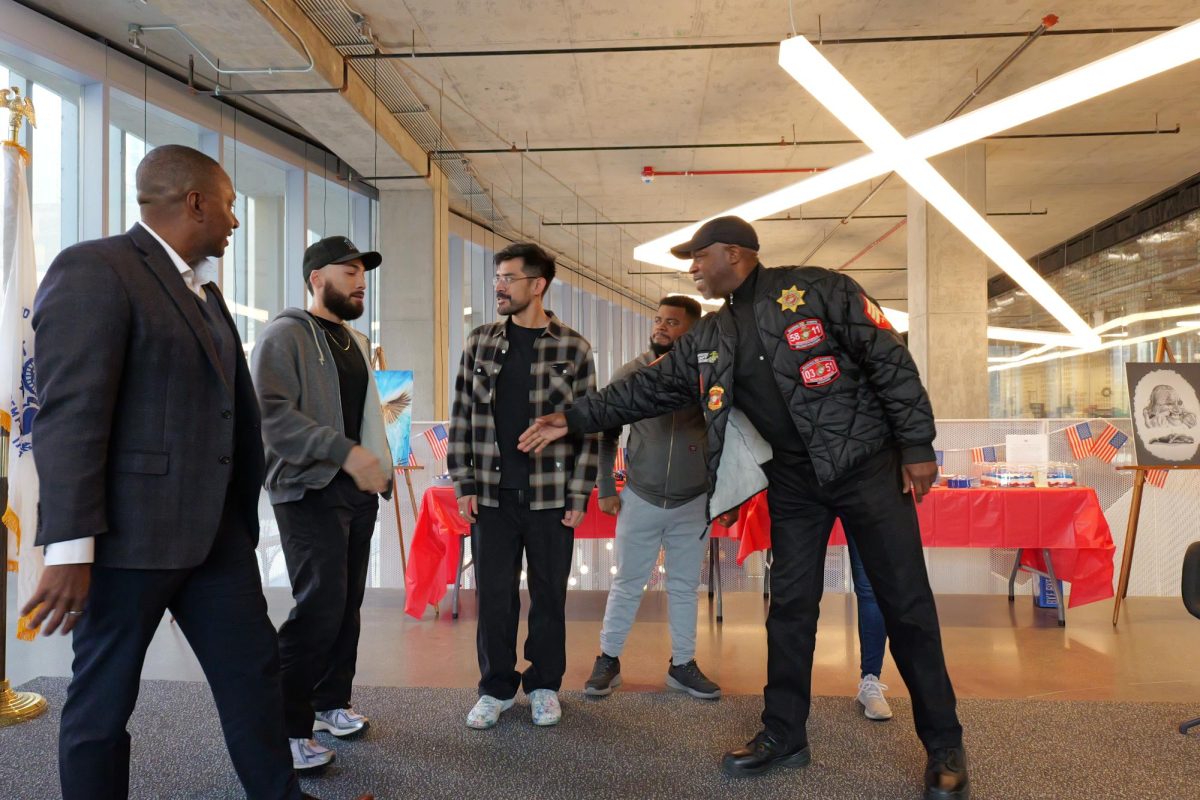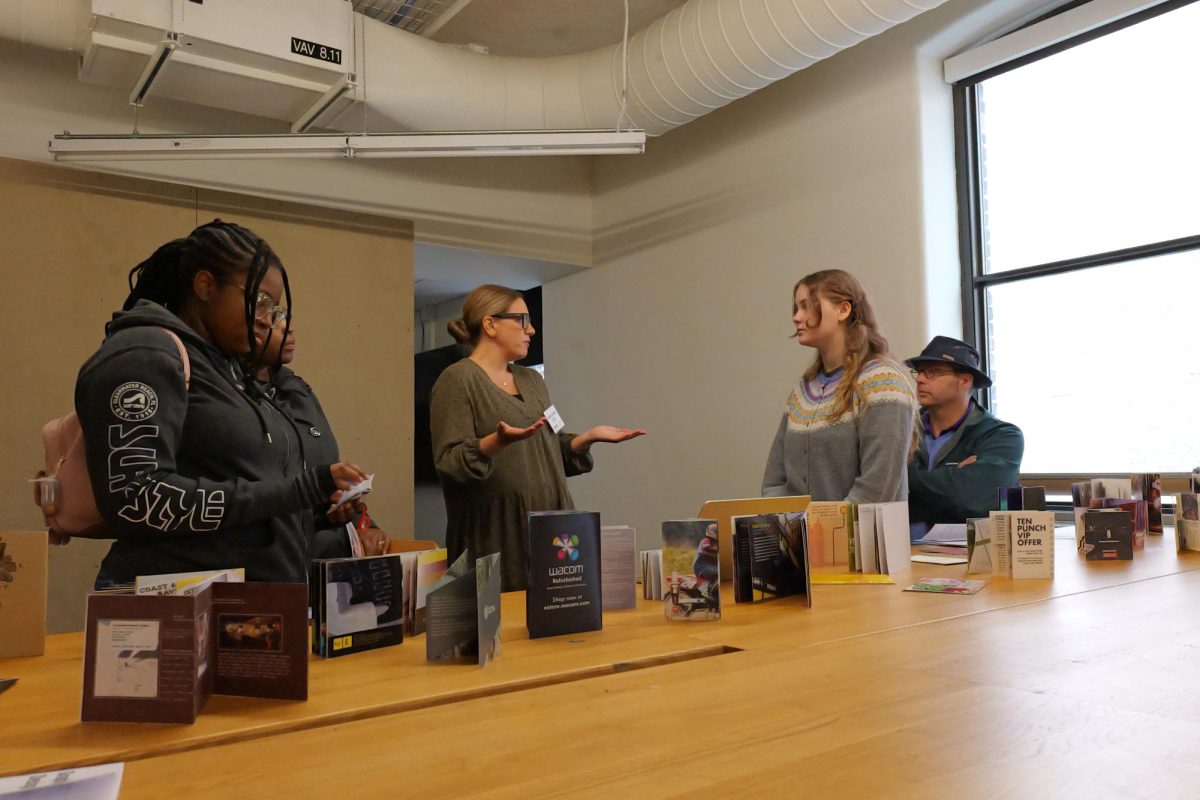Course registration for the 2025 Spring semester opened for Columbia this week. As students register for their courses, many have expressed confusion and apprehension with scheduling assistance from the reduced College Advising Center.
“Right now it’s been a pain,” said Laura Pratt, junior and interior architecture major. “I cannot find the email where I am supposed to be sent with the time and day of when I’m supposed to register, so I’m not even really sure when my time is for this upcoming semester.”
The advising office is smaller than it was last spring. The college laid off 70 people last May, including two academic advisors, to address the financial deficit, now at $17 million. Two more academic advisors left over the summer, and a third was reassigned to another job at the college. The College Advising Center also lost its director. Before the layoffs in May, five unfilled advising positions were eliminated after the college announced a hiring freeze in February 2024, leaving eight full-time staff advisors for 5,570 students this fall.
“I definitely know that there has been a lot of difficulties with finding an advisor, especially your specific advisor,” said senior film and television student Mar Wynn, the Student Government Association vice president of communications. “I remember there’s been instances where I’ve been emailing advisors who’ve quit, and I haven’t even been notified about it.”
In addition to the remaining advisors for the eight schools, Brian Marth, associate provost for academic services, Lauren Targ, an academic life coach also are taking advising appointments right now. Marth currently oversees the advisors, he told the Chronicle.
Hannah Jensvold, an academic advisor, cited the college advising mission statement to best express how advisors aim to provide for their students and “what comes under threat when advising positions are eliminated.”
“The College Advising Center is staffed by some of the most compassionate, thoughtful and hardworking people I’ve ever worked with,” Jensvold told the Chronicle. “When we experience challenges in our work, the advisors in this office inevitably return to the question of how we can better serve our students.”
The college plans to hire three academic advisors, Jensvold said.
Craig Sigele, president of the college’s staff union, which represents full-time advisors, said that college advising is essential for helping students navigate their path to graduation and that the administration must support advisers by providing the resources and staffing necessary to ensure our students thrive and succeed.
“Reducing adviser positions impacts student success, especially during peak registration periods. We need to invest in resources that directly support student progress, not cut them,” Sigele said. “The union has spent months raising this issue with the administration and we are committed to making sure they recognize the critical role advising plays in student success.”
In an email sent out on Nov. 7, the College Advising Center provided students with links for registration resources including a direct link to the advising website, Zoom sessions and instructions for making an appointment.
Additionally, as part of a restructuring over the summer, each school also now has faculty advising fellows to assist students, though this was not widely communicated.
Students reported challenges in finding available advisors, deciphering program requirements and navigating the advising site—issues that have since amplified during a critical registration period.
“I still need to register for this coming semester in the spring and I’m not looking forward to it,” said junior photography major Maya Bowers. “I feel like there’s not going to be a lot left because my time isn’t until later.”
For some, the registration period begins with “drop-in” sessions where students can seek guidance on their course choices, address holds and get advice. Students have struggled to find the schedule advising rush drop-ins, have reported long wait times and display confusion about identifying the advisor for their department.
“I joined at 2:15 and I waited till like 2:40, but I had to go back to class, so I didn’t get the chance,” said senior fashion studies major Natalia Teran.
Students also raised issues with scheduling inconsistencies and lack of clear communication around advisor availability. Some students said that accessing schedules for advisor sessions required navigating through emails and external websites, making it unnecessarily complex.
“I think overall just figuring out who your advisor and the person to contact for your department is what has been hard for people, especially going from communications where everybody knew the head of the department, I have no idea who to contact,” said Alma Rodriguez, a senior social media and digital strategy major.
First-year musical theater major Danielle Lang said that some first-year transfers have found it difficult to register or find the calendar with counselor drop-in times.
“It’s very confusing, especially with the limited amount of time and how many students each advisor has that it gets worrying in those senses to make sure that every student is going to be able to get what they need from each advisor,” said Lang, the SGA first-year senator.
Students report being unaware of faculty fellows or supplementary help and that ongoing changes have made it difficult to build long-term, supportive relationships with advisors who understand their academic and career goals.
“It makes me feel uneasy and it makes me feel like sometimes they don’t take the students enrolled here as a top priority,” said Pratt. “In terms of administration there’s no clear communication.”
Further complications were found in using the degree audit tool, which helps students track their progress toward graduation. Some students find it inaccurate, leading to confusion about their status or remaining credits.
“They just need to be better at organizing time and stop fixing stuff that is not broken,” said sophomore film and television major Olivia Watson. “Fix the audit that is broken.”
Junior film and television major Amerie Paylor, who transferred this previous year, has said the audit has made it difficult for them to find courses needed due to inaccuracies in the degree progress and estimated graduation date for transfer students.
“They automatically add four years to whenever you enroll,” Paylor said.
To address these challenges, some students recommended introducing separate Zoom waiting rooms for different majors to structure and streamline the process and make it easier for students to connect with an advisor who specializes in their department. Students also suggested improving open communication about staff changes.
Senior marketing major I’Ja Wright said she always tells students to use Student Persistence, an academic office on the third floor of the 623 S. Wabash building that helps students reach their degree completion goals through strategic planning and outreach campaigns.
“They have that information, just like academic advising,” said Wright, the SGA representative to the Board of Trustees. “Student persistence sends out emails that tells you if you’re on track with school before midterms; they are in contact with your professors, and they can also look up that information for you and give you a rundown.”
Copy edited by Doreen Abril Albuerne-Rodriguez
Resumen En Español:
La inscripción de primavera de 2025 de Columbia ha dejado a muchos estudiantes frustrados con el asesoramiento académico. A pesar de los correos electrónicos de recursos, muchos estudiantes, incluyendo a Laura Pratt y Maya Bowers, informaron dificultades para acceder a los asesores y comprender los horarios de registro, y algunos enfrentaron largas esperas y confusión sobre las asignaciones de los asesores después de la reestructuración del departamento.
Los estudiantes también notaron problemas en el sistema, como la necesidad de ingresar manualmente códigos de cursos e imprecisiones en la herramienta de auditoría de títulos que afectan el seguimiento de créditos, especialmente para los estudiantes transferidos.
Resumen por Manuel Nocera
Resumen copia editada por Doreen Abril Albuerne-Rodriguez










